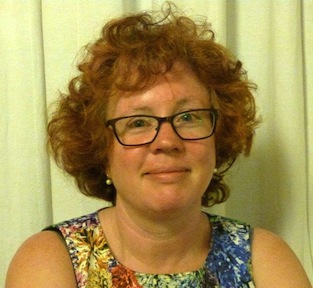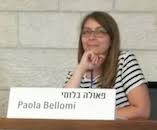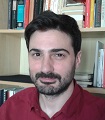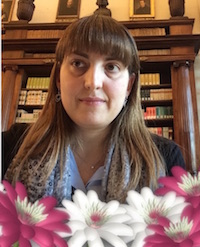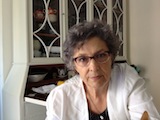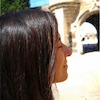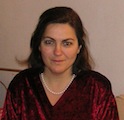Studying at the University of Verona
Here you can find information on the organisational aspects of the Programme, lecture timetables, learning activities and useful contact details for your time at the University, from enrolment to graduation.
Academic calendar
The academic calendar shows the deadlines and scheduled events that are relevant to students, teaching and technical-administrative staff of the University. Public holidays and University closures are also indicated. The academic year normally begins on 1 October each year and ends on 30 September of the following year.
Course calendar
The Academic Calendar sets out the degree programme lecture and exam timetables, as well as the relevant university closure dates..
| Period | From | To |
|---|---|---|
| I semestre | Oct 1, 2015 | Jan 9, 2016 |
| II semestre | Feb 22, 2016 | May 31, 2016 |
| Session | From | To |
|---|---|---|
| Appelli d'esame LINGUE - sessione invernale | Jan 11, 2016 | Feb 20, 2016 |
| Appelli d'esame LINGUE - sessione estiva | Jun 3, 2016 | Jul 29, 2016 |
| Appelli d'esame LINGUE - sessione autunnale | Aug 29, 2016 | Sep 29, 2016 |
| Session | From | To |
|---|---|---|
| TESI DI LAUREA - LINGUE | Nov 18, 2015 | Nov 20, 2015 |
| TESI DI LAUREA - LINGUE | Mar 30, 2016 | Apr 1, 2016 |
| TESI DI LAUREA - LINGUE E LL.SS | Jul 6, 2016 | Jul 8, 2016 |
| TESI DI LAUREA - LINGUE E LL.SS | Nov 23, 2016 | Nov 25, 2016 |
| Period | From | To |
|---|---|---|
| Vacanze di Natale | Dec 23, 2015 | Jan 6, 2016 |
| VACANZE DI PASQUA | Mar 24, 2016 | Mar 29, 2016 |
| FESTA DELLA LIBERAZIONE | Apr 25, 2016 | Apr 25, 2016 |
| FESTA DEI LAVORATORI | May 1, 2016 | May 1, 2016 |
| FESTA DEL SANTO PATRONO SAN ZENO | May 21, 2016 | May 21, 2016 |
| FESTA DELLA REPUBBLICA | Jun 2, 2016 | Jun 2, 2016 |
| Vacanze estive | Aug 8, 2016 | Aug 15, 2016 |
Exam calendar
Exam dates and rounds are managed by the relevant Foreign Languages and Literatures Teaching and Student Services Unit.
To view all the exam sessions available, please use the Exam dashboard on ESSE3.
If you forgot your login details or have problems logging in, please contact the relevant IT HelpDesk, or check the login details recovery web page.
Should you have any doubts or questions, please check the Enrollment FAQs
Academic staff
 birgit.alber@univr.it
birgit.alber@univr.it
 paola.bellomi@univr.it
paola.bellomi@univr.it
 daniele.beltrame@univr.it
daniele.beltrame@univr.it
 riccardo.cella@univr.it
riccardo.cella@univr.it
Ceresa Marco

Chiecchi Giuseppe
 giuseppe.chiecchi@univr.it
giuseppe.chiecchi@univr.it
 +39 045802 8117
+39 045802 8117
 chiara.conterno@univr.it
chiara.conterno@univr.it
 cinzia.delotto@univr.it
cinzia.delotto@univr.it
Di Leo Donata
 veronica.gobbato@univr.it
veronica.gobbato@univr.it
 gianpaolo.lazzer@univr.it
gianpaolo.lazzer@univr.it
 zosimo.lopezpena@univr.it
zosimo.lopezpena@univr.it
 anna.morbiato@unive.it
anna.morbiato@unive.it
 chunye.niu@univr.it
chunye.niu@univr.it
 giulio.ongaro@univr.it
giulio.ongaro@univr.it
 sara.paolini@univr.it
sara.paolini@univr.it
Study Plan
The Study Plan includes all modules, teaching and learning activities that each student will need to undertake during their time at the University.
Please select your Study Plan based on your enrollment year.
1° Year
| Modules | Credits | TAF | SSD |
|---|
German literature and culture 1
Spanish Literature and Culture 1
German literature and culture 1
Spanish Literature and Culture 1
2° Year activated in the A.Y. 2016/2017
| Modules | Credits | TAF | SSD |
|---|
German literature and culture 2
German literature and culture 2
Spanish literature and culture 2
Spanish literature and culture 2
Theory and Techniques of communication
Geography of communication and international trade
Italian literature and culture
Modern and Contemporary Economic History
3° Year activated in the A.Y. 2017/2018
| Modules | Credits | TAF | SSD |
|---|
Comparative and European Public law
Principles of international marketing
| Modules | Credits | TAF | SSD |
|---|
German literature and culture 1
Spanish Literature and Culture 1
German literature and culture 1
Spanish Literature and Culture 1
| Modules | Credits | TAF | SSD |
|---|
German literature and culture 2
German literature and culture 2
Spanish literature and culture 2
Spanish literature and culture 2
Theory and Techniques of communication
Geography of communication and international trade
Italian literature and culture
Modern and Contemporary Economic History
| Modules | Credits | TAF | SSD |
|---|
Comparative and European Public law
Principles of international marketing
| Modules | Credits | TAF | SSD |
|---|
Legend | Type of training activity (TTA)
TAF (Type of Educational Activity) All courses and activities are classified into different types of educational activities, indicated by a letter.
Spanish literature and culture 2 [Tur] (2016/2017)
Teaching code
4S002908
Teacher
Coordinator
Credits
9
Language
Spanish
Scientific Disciplinary Sector (SSD)
L-LIN/05 - SPANISH LITERATURE
Period
I SEMESTRE dal Oct 3, 2016 al Jan 21, 2017.
Learning outcomes
The course aims at providing skills and critical instruments for understanding Spanish literature and culture of the Golden Age within their historical and social context. The course will develop abilities of textual reading and analysis of fundamental texts both in prose (Don Quijote, Lazarillo de Tormes) and verse (Garcilaso de la Vega, Santa Teresa de Jesús, Luis de León, San Juan de la Cruz…)
Program
En inglés y español
Textos de lectura obligatoria*:
- Antología comentada de la literatura española. Historia y textos. Siglo XVI, dirigida por Andrés Amorós, Madrid, Castalia, 2007 [All’inizio del corso verranno indicati i capitoli e i testi antologici che formano parte del programma d’esame*].
- - Lazarillo de Tormes, edición de Francisco Rico, Madrid, Cátedra.
- M. de Cervantes, Don Quijote de la Mancha, ed. Francisco Rico, Madrid, Alfaguara, 2016.
[Existe, aunque no sostituye el libro impreso, edición electrónica: Miguel de Cervantes, El ingenioso Hidalgo Don Quijote de la Mancha, ed. F. Rico. Madrid: Centro Virtual Cervantes, 1997. http://cvc.cervantes.es/literatura/clasicos/quijote]-
El curso está dividido en dos partes:
PRIMERA PARTE:
los reyes católicos; el imperio de Carlos V; el legado de Erasmo de Rotterdam; la reforma protestante y sus consecuencias; la Contrarreforma; la época de Felipe II; moros, judíos y moriscos: sus expulsiones; los géneros literarios: la picaresca, los libros de caballerías, la novela pastoril, bizantina, morisca. La poesía española: el petrarquismo, Garcilaso de la Vega, Santa Teresa de Jesús, Luis de León, San Juan de la Cruz…
SEGUNDA PARTE: lectura, análisis y comentario del Lazarillo de Tormes y del Quijote de Cervantes con particular atención al papel de las mujeres y de los hombres en las dos obras.
Bibliografía crítica recomendada
- Mario Socrate, Il riso maggiore di Cervantes, Firenze, La Nuova Italia, 1998, pp.1229-220 (sobre la vida de Cervantes, páginas 1-54; sobre el Quijote, páginas 55-128; sobre las Novelas Ejemplares, páginas 129-220).
- M. G. Profeti (a cura di), L’età d’oro della letteratura spagnola: Il Cinquecento, Firenze, La Nuova Italia, 1997.
- A. Spagnoletti, Il mondo moderno, Bologna, Il Mulino, 2005.
- J. H. Elliott, La Spagna imperiale. 1469-1716, Bologna, Il Mulino, 2006.
- Historia de la literatura española, 2. La conquista del clasicismo 1500-1598, Jorge García López, Eugenia Fosalba y Gonzalo Pontón, Barcelona, Crítica, 2010.
- H. Rawlings, L’inquisizione spagnola, Bologna, Il Mulino, 2008.
- AA. VV., Alle radici dell’Europa. Mori, giudei e zingari nei paesi del Mediterraneo occidentale (Volume I: secoli XV-XVII), a cura di F. Gambin, Firenze, Seid, 2008.
- AA. VV,, Alle radici dell’Europa. Mori, giudei e zingari nei paesi del Mediterraneo occidentale (Volume II: secoli XVII-XIX), a cura di F. Gambin, Firenze, Seid, 2009.
- A. Vanoli, La reconquista, Bologna, Il Mulino, 2009.
- Po-chia Hsia, R. La controriforma. Il mondo del rinnovamento cattolico (1540-1770), Bologna, Il Mulino, 2009.
- G. Bessong, I sefarditi, Bologna, Il Mulino, 2010.
- F. Márquez Villanueva, Moros, moriscos y turcos en Cervantes. Ensayos críticos, Barcelona, Bellaterra, 2010.
- A. M. Paramio; J. C. Villaverde Amieva; A. I. Beneyto Lozano, Memoria de los Moriscos, escritos y relatos de una diáspora cultural, Madrid, Sociedad Estatal de Conmemoraciones Culturales, 2010.
- P. de Valencia, Trattato sui moriscos di Spagna, introduzione, edizione e note di Felice Gambin. Alla traduzione ha collaborato Silvia Monti, Pisa, ETS, 2013.
Sobre la vida de Cervantes, véase, entre otros, Jorge García López, Cervantes: La figura en el tapiz. Itinerario personal y vivencia intelectual, Barcelona, Pasado&Presente, 2015.
Durante el desarrollo del curso se darán ulteriores indicaciones bibliográficas actualizadas.
Inglés:
Silabus
- Antología comentada de la literatura española. Historia y textos. Siglo XVI, dirigida por Andrés Amorós, Madrid, Castalia, 2007.
- - Lazarillo de Tormes, edición de Francisco Rico, Madrid, Cátedra.
- M. de Cervantes, Don Quijote de la Mancha, ed. Francisco Rico, Madrid, Alfaguara, 2016.
[Esiste anche se non sostituisce il cartace un'edizione online: Miguel de Cervantes, El ingenioso Hidalgo Don Quijote de la Mancha, ed. F. Rico. Madrid: Centro Virtual Cervantes, 1997. http://cvc.cervantes.es/literatura/clasicos/quijote]-
Recommended but not required critical bibliography:
Mario Socrate, Il riso maggiore di Cervantes, Firenze, La Nuova Italia, 1998, pp.129-220.
- M. G. Profeti (a cura di), L’età d’oro della letteratura spagnola: Il Cinquecento, Firenze, La Nuova Italia, 1997.
- A. Spagnoletti, Il mondo moderno, Bologna, Il Mulino, 2005.
- J. H. Elliott, La Spagna imperiale. 1469-1716, Bologna, Il Mulino, 2006.
- Historia de la literatura española, 2. La conquista del clasicismo 1500-1598, Jorge García López, Eugenia Fosalba y Gonzalo Pontón, Barcelona, Crítica, 2010.
- H. Rawlings, L’inquisizione spagnola, Bologna, Il Mulino, 2008.
- AA. VV., Alle radici dell’Europa. Mori, giudei e zingari nei paesi del Mediterraneo occidentale (Volume I: secoli XV-XVII), a cura di F. Gambin, Firenze, Seid, 2008.
- AA. VV,, Alle radici dell’Europa. Mori, giudei e zingari nei paesi del Mediterraneo occidentale (Volume II: secoli XVII-XIX), a cura di F. Gambin, Firenze, Seid, 2009.
- A. Vanoli, La reconquista, Bologna, Il Mulino, 2009.
- Po-chia Hsia, R. La controriforma. Il mondo del rinnovamento cattolico (1540-1770), Bologna, Il Mulino, 2009.
- G. Bessong, I sefarditi, Bologna, Il Mulino, 2010.
- F. Márquez Villanueva, Moros, moriscos y turcos en Cervantes. Ensayos críticos, Barcelona, Bellaterra, 2010.
- A. M. Paramio; J. C. Villaverde Amieva; A. I. Beneyto Lozano, Memoria de los Moriscos, escritos y relatos de una diáspora cultural, Madrid, Sociedad Estatal de Conmemoraciones Culturales, 2010.
- P. de Valencia, Trattato sui moriscos di Spagna, introduzione, edizione e note di Felice Gambin. Alla traduzione ha collaborato Silvia Monti, Pisa, ETS, 2013.
- Jorge García López, Cervantes: La figura en el tapiz. Itinerario personal y vivencia intelectual, Barcelona, Pasado&Presente, 2015.
| Author | Title | Publishing house | Year | ISBN | Notes |
|---|---|---|---|---|---|
| AAVV | Antología comentada de la literatura española | castalia | 2006 | ||
| M. de CERVANTES | Don Quijote de la Mancha, ed. Francisco Rico | Alfaguara | 2016 | ||
| María de Zayas | Novelas amorosas y ejemplares | Cátedra | 2004 | 978-84-376-1825-8 |
Examination Methods
Ingles y español
The exam will be an oral discussion in Spanish/Italian. Attending students will take a self-assessment test (verifica in itinere) during the course. The grade given will be part of the final grade. The self- assessment test will be done only once (in December).
Students who pass the written exam will have to prepare, for the oral examination, only the second part, which consists on the reading and commenting of Don Quijote.
In order to take the oral exam, students need to have already passed both Lingua spagnola 1 (Spanish Language 1) and Letteratura spagnola 1 (Spanish Literature 1). All students are allowed to take part on the self-assessment test (prova in itinere).
The syllabus is the same for non-attending students. Students who cannot attend the lessons are kindly invited to get in touch with the professor.
*************
Examen oral en español. DURANTE el curso los estudiantes que frecuentan presentarán breves relaciones orales y podrán acceder a un examen escrito optativo (test) parcial (verifica in itinere), consiguiendo una nota que contribuirá a la evaluación final. La prueba escrita tiene lugar solamente una vez al año.
Los que superen la prueba escrita tienen que preparar para el examen oral solo la segunda parte, o sea la lectura del Lazarillo de Tormes y del Quijote de Cervantes.
Para acceder a este examen hay que haber superado Lingua spagnola 1 e Letteratura spagnola 1
El programa vale también para los estudiantes que no asisten a clase, aunque se invitan a los no frecuentantes a escribir al docente .
Type D and Type F activities
To discover all the teaching activities accredited by the foreign teaching college click here
Career prospects
Module/Programme news
News for students
There you will find information, resources and services useful during your time at the University (Student’s exam record, your study plan on ESSE3, Distance Learning courses, university email account, office forms, administrative procedures, etc.). You can log into MyUnivr with your GIA login details: only in this way will you be able to receive notification of all the notices from your teachers and your secretariat via email and soon also via the Univr app.
Student login and resources
Gestione carriere
Assegnazione tutore
Attività accreditate D/F
Calendario didattico dettagliato
Cambio lingua curriculare
Competenze informatiche
Competenze linguistiche (prima e seconda lingua)
Competenze linguistiche in triennale (terza lingua CFU F)
Compilazione del piano didattico
Corso di Lingua portoghese
Erasmus+ e altre esperienze all'estero
Linguistic training CLA
Presentazione dei corsi di studio e Open day
Graduation
List of theses and work experience proposals
| Stage | Research area |
|---|---|
| PROGETTO MAMBRINO Stage per bibliografia | Various topics |
Saperi minimi
Stage e tirocini
Nel piano didattico della laurea triennale in Lingue per il turismo e il commercio internazionale (L12) è previsto un periodo di stage obbligatorio (CFU 6) in organizzazioni imprenditoriali.
Le attività di stage sono finalizzate a far acquisire allo studente una conoscenza diretta in settori di particolare interesse per l’inserimento nel mondo del lavoro e per l’acquisizione di abilità professionali specifiche.
Le attività di stage sono svolte sotto la diretta responsabilità di un singolo docente presso studi professionali, enti della pubblica amministrazione, aziende accreditate dall’Ateneo veronese.
I crediti maturati in seguito ad attività di stage saranno attribuiti secondo quanto disposto nel dettaglio dal “Regolamento d’Ateneo per il riconoscimento dei crediti maturati negli stage universitari” vigente.
- Tutte le informazioni in merito agli stage per futuri studenti sono disponibili alla pagina Stage e tirocini.
- Tutte le informazioni in merito agli stage per studenti iscritti sono pubblicate in MyUnivr - come fare per - stage e tirocini.
- Tutte le informazioni in merito agli stage per le aziende sono disponili alla pagina Stage e tirocini per azienze.
Ulteriori informazioni al seguente link https://www.univr.it/it/i-nostri-servizi/gestione-carriere-studenti-lingue-e-letterature-straniere/stage-e-tirocini-lingue-e-letterature-straniere
